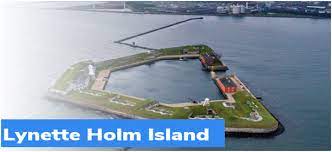COMPREHENSIVE AND PROGRESSIVE AGREEMENT FOR TRANS-PACIFIC PARTNERSHIP (CPTPP)
Why in News:
The UK has formally agreed to become the first European country to join the Comprehensive and Progressive Agreement for Trans-Pacific Partnership (CPTPP).
Important Points:
The United Kingdom formally signed a treaty to join a major Indo-Pacific bloc — what it said was the biggest trade deal since the country left the European Union at the beginning of 2020.
UK Business Minister put her signature on the accession protocol for the Comprehensive and Progressive Agreement for Trans-Pacific Partnership (CPTPP) in Auckland, New Zealand.
Britain has “a seat at the table in the fastest-growing region” and that other countries are queuing up to join the pact
The pact would boost UK exports by 1.7 billion pounds (€1.9 billion, $2.23 billion), imports to the UK by 1.6 billion pounds and gross domestic product (GDP) by £1.8 billion pounds in the long term. The pact is expected to take effect in the second half of 2024.
What is CPTPP?:
The CPTPP is a landmark pact agreed upon in 2018 that cuts trade barriers among 11 countries, including Australia, Brunei, Canada, Chile, Japan, Malaysia, Mexico, New Zealand, Peru, Singapore and Vietnam.
The pact requires countries to eliminate or significantly reduce tariffs and make strong commitments to opening services and investment markets.
It also has rules addressing competition, intellectual property rights and protections for foreign companies.
CPTPP is seen as a bulwark against China’s dominance in the region, although Beijing has applied to join, along with Taiwan, Ukraine, Costa Rica, Uruguay and Ecuador.
Why is the CPTTP so important to the UK?:
CPTTP will cut tariffs for UK exports to Asia Pacific countries and with UK membership, the trading bloc will have a combined GDP of 12 trillion pounds and account for 15% of global trade.
Britain is keen to deepen trade ties in the Pacific after Brexit in 2020.
London has been pushing a “Global Britain” strategy since it gave up EU membership after nearly 50 years, leaving the bloc’s single market and customs union.
Since Brexit, the UK has sought other trade deals with countries and trading blocs around the world that the government says have faster-growing economies than the EU.
But London will likely struggle to achieve free trade deals with large powers like China in the near term and even its closest ally, the United States has further trade liberalization with Britain is currently off the table.
Critics say CPTTP and other deals will struggle to compensate for the economic damage sustained by leaving the now-27-member EU — the world’s largest trading bloc and collective economy.
The UK’s long-term productivity is forecast to be reduced by 4% as a result of Brexit.
The UK already has trade deals with 10 of the 11 other CPTPP members and the eventual economic boost is likely to increase GDP by just 0.08% annually.
In 2022, Britain exported 340 billion pounds of goods and services to the EU, 42% of total UK exports.
The global growth is forecast to come from the Indo-Pacific by around the middle of 2030 and growth will continue into the middle of the century.
What else was announced at the CPTTP meeting?:
Trans-Pacific trade pact members were gathering intelligence on those countries interested in joining the agreement to see whether they were able to meet the bloc’s “high standards.”
The membership is currently undertaking an information-gathering process on whether aspirant economies can meet the CPTPP’s high standards, taking into account their experience on their trade commitments.



.jpg)
.jpg)
.jpg)
.jpg)
.jpg)
.jpg)





